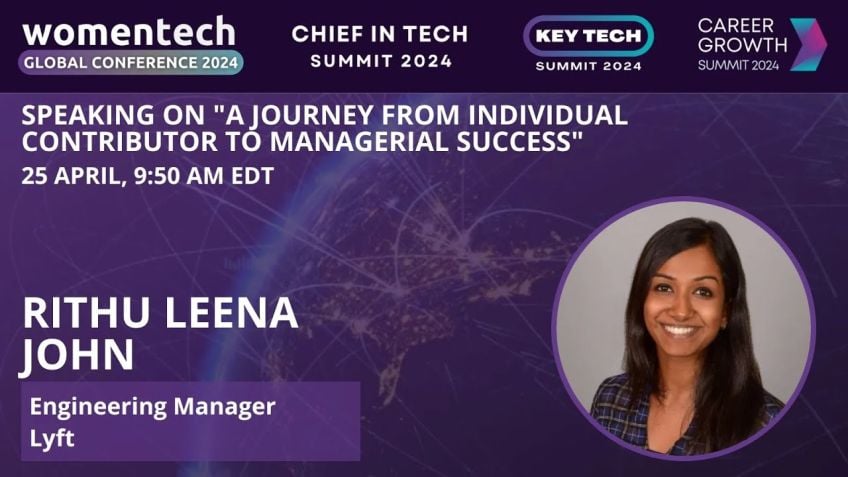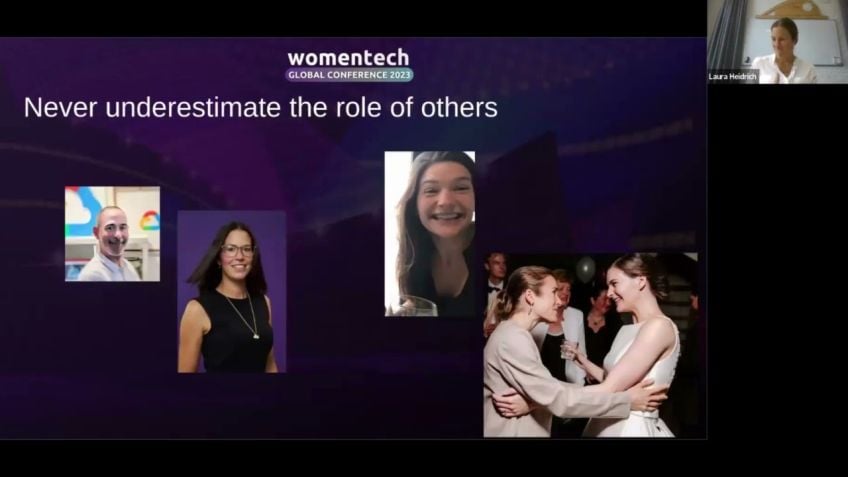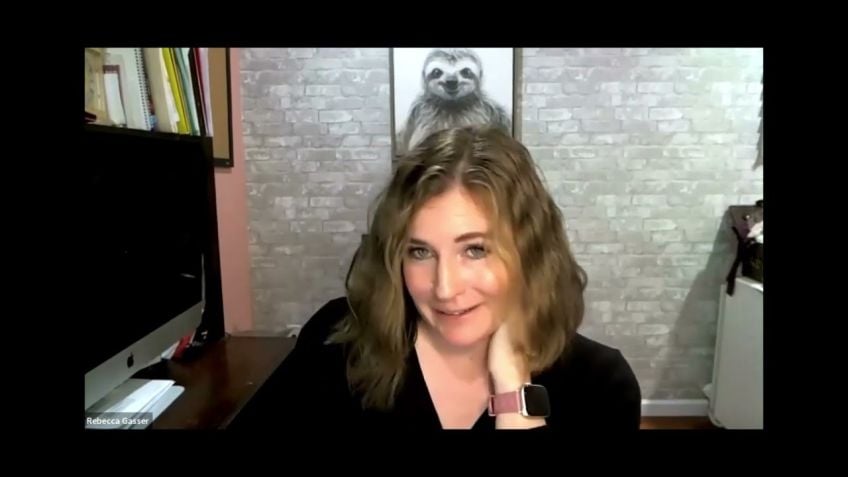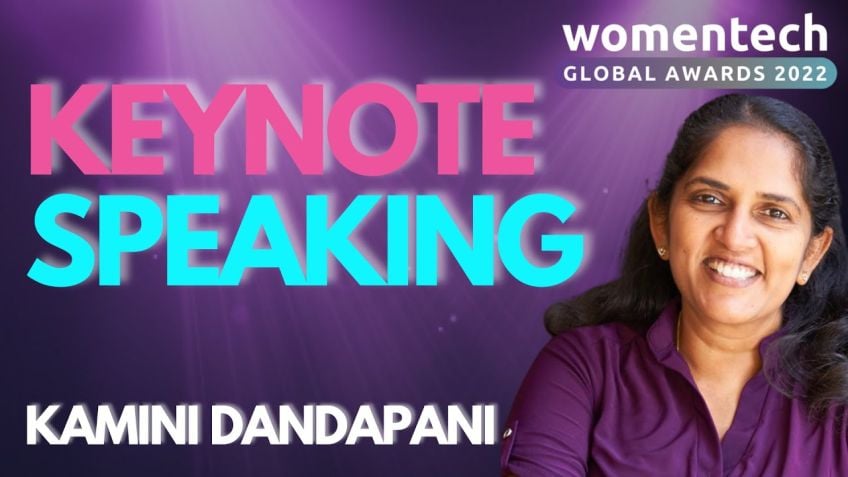Taking It Personally: Leveraging Strength from Your Ethnicity, Your Culture to Lead Authentically
Reviews
Leveraging Strength from Your Ethnicity: The Power of Cultural Diversity
In an increasingly global and diverse world, understanding your ethnic roots could unlock some unique benefits in both your personal and professional life. The session aims to guide you on a journey through my story – from my migration into the United States as a teenager, reputable career at IBM and channeling my ethnicity as an empowering tool toward achieving digital inclusion with my strategy advisory company.
Understanding How Ethnic Diversity Shapes Our Identity
Looking back on my journey, I’ve realized that my Chinese heritage actually played a significant role in shaping my professional identity and leadership skills. Little did I understand during my upbringing in Taiwan and Hong Kong, that this background would directly impact the trajectory of my career.
The profound influence of cultural diversity only became evident to me as I navigated my way through roughly 37 years at IBM, eventually becoming IBM's first Chief Assistance Officer. However, this is not the end of the road for me. I am now utilizing the digital inclusion angle in my advisory firm to assist both startups and enterprise customers, ensuring that technology is accessible to all.
Moving From the Root to the Branch: The Four L's
Having existed in both professional and cultural atmospheres, I've come to realize the importance of integrating both aspects of my life. This philosophy revolves around four "L" categories:
- Learn: Learning for mastery and perpetual knowledge acquisition is a fundamental aspect of the Asian culture. For instance, familiarizing myself extensively with American history before even stepping foot into the United States played a significant part in understanding and relating with the culture.
- Listen: Paying attention to the elders and deciphering insights from their wisdom is a core tenet in Chinese culture. This active and insightful listening increases comprehension and empathy, resulting in better relationships in the business world.
- Live: Chinese culture exemplifies the concept that experiencing is far better than merely reading. Personally, engaging with diverse cultures, practices, and customs firsthand grants me a more robust global understanding.
- Lead: After mastering the act of learning, insightful listening, and living the experiences, it instills the ability to lead effectively. This leadership aspect involves having a broad perspective, having a clear vision, and being consciously aware of your decisions and actions.
Epilogue: Climbing the Ladder of Transformation With Your Cultural Heritage
In the grand scheme of things, the essence of leveraging strength from your ethnicity extends beyond HR topics. The unpredictable, disruptive, and highly competitive corporate world requires diverse, fast, and innovative thinking brought about by embracing cultural diversity.
In conclusion, irrespective of your cultural or ethnic background, being proud of who you are can stand as a significant advantage in any professional setting. Understanding the unique nuances of diverse cultures across the world can pave the way for innovative and disruptive perspectives that are integral to success in an ever-changing world.
You're welcome to connect on Twitter or LinkedIn. Also, find more insights on this topic in my book "Authentic Inclusion Drives Disruptive Innovation" available on Amazon.
Video Transcription
Welcome to the leveraging Strength from your ethnicity session today. I know this has been a um very um uh robust uh conference and many of you probably are running virtually from session to session. So thank you again for coming to this uh particular um session.What I'm gonna do in the next uh 15 minutes or so to take you through a very quick journey of my personal journey. Um how I evolve uh from a um um I guess you can say a teenager, I came to the United States as an immigrant at 19 and all the way through my career with IBM. Uh after spending about uh 37 years at IBM, uh becoming IB M's first chief assist officer. And now I have my own um uh strategy advisory um company uh helping uh both start up and also enterprise customers. Um really uh embedding uh what I call digital inclusion into their strategy so that all people can have access through technology, whether it's, you know, um website or mobile apps and making sure that anybody who are uh either uh disabled or are aging can have access. So in looking back this whole journey. Um what I realized is that my own ethnicity. In this case, I was born in Taiwan and uh but then I moved to Hong Kong when I was 14, so educated in Hong Kong.
So my Chinese heritage actually um helped shape who I am as a professional. And uh in many cases, actually advised me to really um in a subconscious way to shape my leadership skill sets. So this is what I'm gonna share with you uh through my um a quick presentation and then I'm gonna try to leave some time for a question and uh uh uh Q and A um I'm gonna uh uh kind of uh share a few charts so that to give some contextual um a background of what this topic is about and then related back to my, like I said, my personal journey and also the professional journey.
So bear with me, let me just share my uh presentation uh with you. Now, of course, now I cannot find my presentation and let me just try again see if I can bring it back up. Um So let's hope that uh it's there. Hmm I don't know why it's not there. Um So let me, let me just let me just do one more time. If not, I'm, I guess I just have to talk about it. Uh Virtually uh Well, the presentation is not showing up. I don't know why it is doing that. Let me do a share and stop share again and then see one more time, then we will try to, you know, this goes to show that. Um it's a problem with the technology today. But anyway, um if we cannot find this presentation, uh as I'm going through it, uh I will, I would just, you know, talk through it. But basically, when I um grew up as a uh individual in Taiwan, I was actually one of the tallest girl in my class. And um in my school play, I went in kindergarten. I remember my mother talking about me being um a and I actually play a role of a tree in my school play at the time. I was very into trying to be the, you know, OK, here we are. So here we are the presentation. I hope you can um can see it.
Um So what I wanted to do to give you a little bit of context, you know, so my whole background as a person who's different, who's a first generation immigrant actually helped to shape my experience and then help me leverage my diversity to become a business leader. Um In this case, like I mentioned, if you look at this uh kindergarten picture of mine, I don't know whether you can spot me or not, but I'm actually one of the tallest girl in my class in, in our graduation school play. I play a part of a tree and it's actually fitting that I stand right next to a tree. And I remember my mom going home feeling sorry for myself. And my mom said to me, why are you feeling sorry for yourself? Not playing the princess? Um You play a tree and you're still on stage and you're with your audience and you get to enjoy the school play. So what's to complain? So that gave me a very early kind of um uh I guess epiphany that is you can always take a situation and reframe it and then learn from it. So in this case, I was a very happy tree standing in the background watching the school play. And in later years, I will, I can tell people and share that I was in a school play.
Of course, I was not a princess, I was a tree, but that was actually the foundation of how I actually navigating my business world is that when there are situations not quite optimal, I guess you can say. But then I always relate back that what can I learn from being a tree? So that is part of my foundational kind of thinking. And um and through my 37 years career with IBM, uh I was in sales and marketing. As you can imagine, there is a lot of ups and downs and all that. But this kind of a foundational um thinking which is whatever adversity or situation is not that as, as a desire to come to me, I tried to reframe it. So and I think with that, it will help me to navigate to become the IBM chief um accessibility officer. Um um you know, in the company and some of you may say, what is the accessibility officer, the um being accessibility officer brought me to the uh worldwide, you know, uh facilities or geography in countries like India in China. In this case, what we did was that we took technology and make it part of the um part of the uh thinking of a company's strategy uh discussion of it.
And that one of my work is to make sure that we actually introduce technology to help people with disabilities and people who are aging can have access. And through that journey, what I realized that, you know what we are hearing, what, especially in the technology world, it's very important that we really respect the human diversity as a disruptive innovation factors and that we really respect individual's ability to make a difference, not in spite of but because of their difference.
So my work was very much centered around bringing together the intersection of both diversity, inclusion and technology, uh combining and, and defining it as what I call the authentic inclusion because as you all know that a lot of times we have heard about inclusion, but the technology inclusion is a lot of time is not included.
And also when we talk about inclusion, a lot of time, we think about race and gender or sexual orientation. Again, age and ability or disability is not part of that. So I kind of made a part of my life journey to continue to leverage my understanding of my background and my ethnicity and how that helped me to be different and yet that contributed to the authentic inclusion. And so what I did was that as I uh retired from IBM in 2016, which is about six years ago, I had a chance to reflect and to say, and organize my own kind of uh growth and also my own journey to see what are the things that I can actually um you know, help, for example, in the next generation.
Uh I do a lot of mentoring with a start up and advising with a start up um especially female CEO S. And so I try to organize my whole thinking now with my ethnicity, with my background into four category, what I call the four L start with, learn, listen, live and lead. So let me just take it apart for you quickly. What I mean by that? So the first part is that learn, I mean as as Chinese and many of you, especially if you're from uh Asia learning or knowledge acquisition is number one criteria for any parents that is sold on their Children. So this whole idea of um learning, um perpetual learning or lifelong learning is, is really part of the foundation of my, my kind of a growth as a, as a, as a person and also as a leader. And that, for example, here I am, I talked about the Gettys World address before I even step on the uh the land of the United States. In age 19, I actually studied the American history and memorized the Gettysburg address by heart. So I studied the Civil War. In many cases, I think I actually under understand more of an American uh culture and the revolution background or the government system than the average citizen that helped me tremendously later on, especially my business uh career to be able to relate my American colleague about their culture.
So that's the first part is about learning and the second part is about listening. Um again, in the Asian culture, especially in Chinese culture, it's very, very um strong culture that you listen to your elders, listen to their wisdom. And I have a phrase on this chart says, listen with raised ears and instruct with face intent. This is actually a quote from Confucius, meaning that when you listen, you really have to listen carefully and understand what it means to you. So it's really the insightful listening that one has to have. So again, culturally and uh in the business world when you listen and understand not just the words but the intent that really increase your understanding, increase your empathy, increase your comprehension of the issues and so as a leader that lot of times help you to relate better.
So this active listening and, and, and knowing that you have to listen with the intent. And when you give instruction, in this case, face intent, meaning you really need to make sure that the person that you're talking to are engaged with you and that you actually give the 100 if not 200% of yourself. So these are kind of a foundational um uh Proverb that was instilled in me and that I later on carried out in my, my kind of a life's work. The third part is live, you know, that is again in the Chinese culture. There is a phrase called Xin Tian Li Lu Shen Wansu, a literal translation, 1000 miles travel is better than 10,000 books read. So what it says is that you really need to, you know, live the experience in today's world. Here, I have a picture of a Matz ball soup that's relating back to again when I first came to the United States. When I was 19, I was living with a Jewish professor family learning how to make matzo soup, chicken liver pate, learning how to celebrate Passover. Again, it gave me an incredible in depth understanding of the, for example, in this case, the Jewish culture and then be able to compare and contrast how it's very similar to the Chinese culture. For example, the focus on knowledge like I said education and so on.
So I encourage all of you try to really have a lived experience, by the way, uh in my career, I have worked in IBM in Lexington, Kentucky in Grand Rapids, Michigan, and now of course in Boston. So I actually have lived in many places. Oh I forgot to mention also in Beijing, China. So these are very much lived experience that enrich my understanding of the world. And so when I lead, I can really lead with real, real understanding of the background differences and celebrate the differences. Um Last uh is on the, the word lead, right? So once you have learned your craft, learn the knowledge and you have, you know, really actively listen and really be able to absorb others um uh intention or feeling. And then you have the lived experience that enable you to lead here. I have like three phrases is that use, I use a lot in my, as my guiding principle. When I talk to my team, for example, there is a favorite phrase of mine is, is don't, you don't want to be the frog at the bottom of the, well JD meaning you don't want to have a limited review. If you're a frog looking up at the sky, if you're at the bottom of the, well, your perspective is very limited. So you want to have a broad, you know, perspective and then as a leader, you need to climb high. So you can see far.
In other words, you have to have vision again. This Den Gao Wang Yuan is a phrase that has been instilled in me when I was growing up, that if you want to be a leader, you have to climb high. And in this case, you have to climb, meaning there's some hard work involved the last. But I thought it was very interesting because we're talking with um today's a women's conference. Beware of women's benevolence. This is actually Confucius phrase in the contest in times of crisis, in times of war. And he talked about that women sometimes because of our passion or compassion with other humans, sometimes we can be a little indecisive or sometimes we can make decision based on emotion versus um reason or logic. And this is actually something that I have to remind myself at times is that am I being a woman first or am I being, you know, in this case, business first? So one has to be a little bit aware of the, you know, kind of differences in our orientation and be mindful of that. So in this case, this particular phrase or this particular ethnic cultural background really helped me.
Um So one of the uh kind of a last chart I'm gonna share with you um in my uh speaking uh uh with uh executives or advising and mentoring a lot of time I talked about, you know, especially in the post pandemic world, we are in a world, we have to think about the mass or hierarchy with needs in that, in this new modern world of this great reson nation, a lot of a new uh millennial or the JZ um population.
They are not just looking for, you know, for example, income to, to buy food or to buy a house. They're looking for a belonging, they're looking for self esteem and frankly, they're looking for self actualization. So a company cannot just offer a job with a good pay. They really have to think about. Are they meeting the employee where they are in terms of their psychological demands? And I thought it was very interesting actually map to again a Confucius teaching um that is on the right hand side that as I was growing up, I was always reminded that one has to be very careful about self care first and then family care, then community or country care, then the world care.
So in this context, it give me a really good priority of who I am as a person and also as an individual and also as a professional. So with this kind of a backdrop, it kind of helped me to navigate my, my work life, my personal life. And so in this case, it give me the contextual kind of a guideline as to operate. So in the end, I want to say that, you know, my own Chinese background, a strive for for example, a um harmonious uh gray world really helped me to come to this realization. And this idea that that authentic inclusion is about aligning principle and purpose and profit. So last chart is that as you navigate whatever culture you come, you come from, make sure that you remain curious about other culture and that you have courage to be yourself and to have the confidence to communicate who you are, I guess in today's word, be your authentic. So with that, I'm going to turn over to, I have a few, we have a few minutes for Q and A and if you're interested in, you know, I, I wrote a book, uh authentic inclusion drives to construct the in innovation and also some information that you can follow me on Twitter or linkedin.
So now I'm going to stop um my sharing and uh and see how if there is any questions on the side. Yes, my book is on Amazon and uh I was very happy to um to share that. It was actually chosen as the book of the year by CE S the Consumer Electronics Show in 2019. Uh as it, it really uh kind of helped to shape the thinking about what inclusion is about in the contest with technology. Um I guess uh some of the people were um is it slice, did the slide work? I guess it didn't work. Um But um what are you to do? Right? So at this point, um any other questions you may have about the journey and or also about um what I have um uh learned and done in this area? OK. Well, thank you very much. I guess the slide never worked. But uh you know, we, we just have to live with these technology, uh you know, hiccups, so to speak. But thank you all very much for coming to the session today. And uh I hope that uh my sharing my own cultural background. Now this is of course in the context of the Chinese background. But I think be proud of who you are and uh in the end, especially in corporate America.
And I think as time goes on, the more you can be confident and comfortable of yourself, the better you are. Because um in this case, you will be surprised how your cultural background and your ethnicity actually can help better the um the company because you can bring very disruptive thinking and also innovation to a world where it's highly competitive and highly disruptive and highly unpredictable.
So um so this is when the diversity really comes into play, it's not just a hr topic but um overall, and I always say this is a business imperative because the world requires a different kind of thinking, very fast thinking, different thinking, creative thinking. And that cannot achieve if you, if you have a homogeneous group, but a different, you know, uh but they made up of a different employ uh employees and leaders and uh and also the way be able to, you can respond to the crisis, which we all know that uh we are experiencing every single day.
So um with that, I thank you very much for your attention and coming to the session today. Again, my apology for the chart not working, but uh hopefully that uh you know, it works. Uh The, the message is still um I resonate with you. Thank you very much.






No comments so far – be the first to share your thoughts!